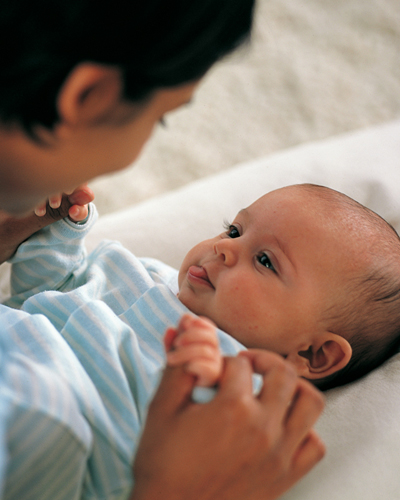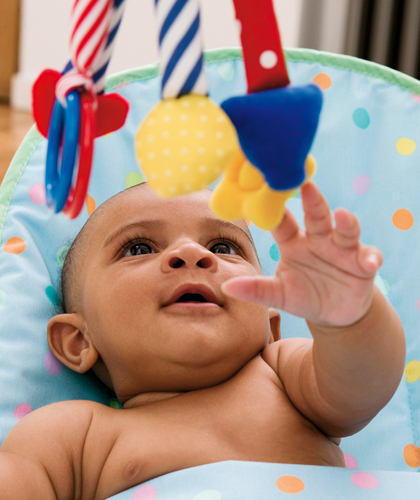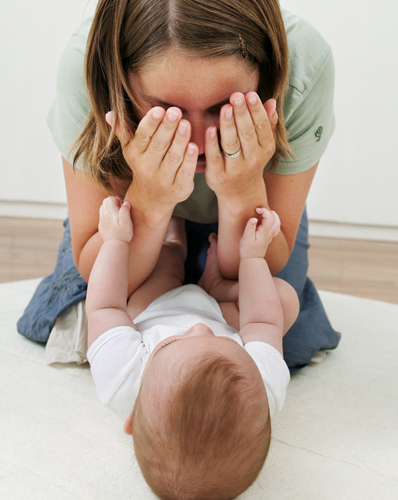Almost as soon as your baby is born he will respond
to stimulation and enjoy interacting with you. There is plenty of
research to suggest that playing with your baby, singing to him, and
talking to him can encourage healthy cognitive development and provide
the foundation for his budding social skills.
Allow your baby to come into contact with
lots of different people, sounds, sights, and other stimuli—what babies
see, touch, hear, and smell causes brain connections to be made,
especially if the experiences happen in a loving, consistent,
predictable manner Talk to your baby constantly, and give him an early introduction to language; he will be reassured and stimulated by the sound of your voice Take him on “visits”
to different rooms in the house, and outside; show him a bird or a
butterfly, or a fast-moving car—everything will be new, and he will be
fascinated by the wealth of light, color, movement, and sound Play music that your baby seems to enjoy, and use his reactions as a guide to what he likes and what he doesn’t Give your baby a massage; the power of touch is well documented, and it will also stimulate him both emotionally and physically Hold his hand under a running tap and let him run his fingers through the water Sing or read silly rhymes and songs—this encourages an early appreciation and understanding of language When he’s able to hold up his head, help him to stand up in your lap and bounce a little, which encourages gross motor skills Play peekaboo with your hands, or hide your face briefly behind a towel or burp cloth Cuddle and hold your baby—studies show that the more you do this, the more secure and independent he will be when he is older Choose toys that are tactile, to encourage your baby to become familiar with lots of different physical experiences Jingle keys, shake a box of rice, knock on the table, and teach your baby a variety of different sounds; he’ll soon turn his head to see what’s going on Remember that play is crucial for your baby’s social, emotional, physical, and cognitive development If your baby starts to cry during playtime,
switch to calmer activities such as reading from a picture book,
quietly singing, or simply feeding—some babies are easily overstimulated Swing a soft toy or ball from the end of a piece of string, and encourage him to bat or kick at it
Meeting milestones
Familiarize
yourself with the milestones that your baby should reach in his first
year, and plan your games and activities to help him meet them at the
appropriate age. This will also help you to make sure that he regularly
faces the exciting challenge of doing new things—successfully!



|